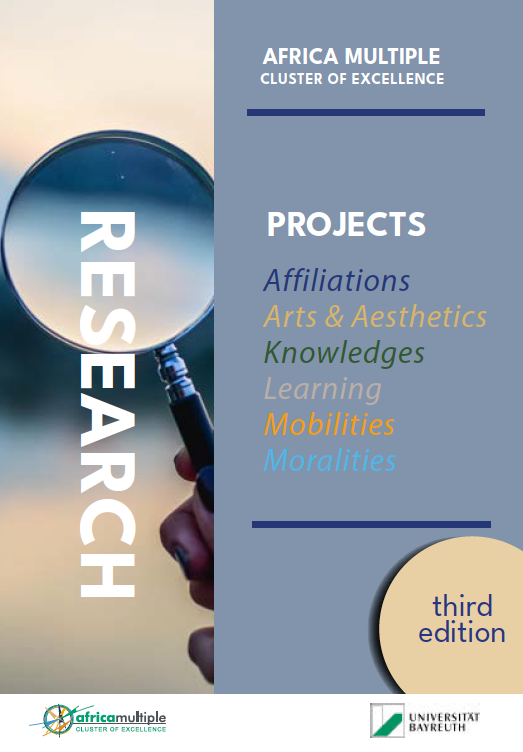Islamic Popular Culture and Public Performance Practices: The Production, Transmission of Religious Knowledge and Creation of Cultural Identity in Africa
-
Research Section: ARTS AND AESTHETICS (in synergy with LEARNING and KNOWLEDGES)
-
Project duration: 01.01.2022 - 31.12.2025
-
Find an overview of the project (PDF) here.
Summary
Though in Africa, Islamic knowledge production and transmission is traditionally associated with male ulama in textual format (Ndzovu 2019), poetry, music and film-video have demonstrated that it could also be transmitted in an uncomplicated form, where female actors participate as well. This simplicity is evident through the production of ‘Islamic-poetry’, ‘Islamic-music’, and ‘Islamic-film video’, where the three public performance practices have established to be practical sources for relaying religious knowledge. Though, the category of Islamic public performance is complex, incorporating aesthetic and ritual practices (Frishkopf 2008), it also reveals diverse attitudes to poetry, music and film video in diverse Muslim societies. Among African Muslims, poetry, music and film-video are important (Kirkegaard 2012), but also disputed part of Islamic discourse (Ibrahim 2017; Adamu 2010). The three purveyors of popular culture not only support religious meanings (McLaughlin 1997), but also give variation in the transmission of religious knowledge, a process that has demystified the traditional textual and religious space of the mosque by embracing social halls, homes and entertainment places. More so, performative arts also remind African Muslims of their identity thereby supporting the socializing processes intended in creating the feeling of cultural belonging (Larkin 2004). Therefore, this research project seeks to examine the role of gender, local languages and performative aesthetics in the production and transmission of religious knowledge and how subsequently the resultant popular culture creates cultural identity and sense of belonging among Muslims in Kenya, Zanzibar, Nigeria and Morocco. The incorporation of multiple disciplines to problematize and interrogate the theme of Islamic popular culture has the potential to generate in a reflexive and relational ways new knowledge on the understanding and usage of the three public performances identified.
Key Questions
This research project seeks to answer the following questions: (i) How does Islamic performances contribute in the production and diffusion of religious knowledge among Muslims in the four selected countries? (ii) How have the Islamic performances perpetuated linguistic borrowing among speakers of local languages as evident in the music and film-video production in Kenya, Zanzibar, Nigeria and Morocco? (iii) What dynamics does the entry of women in the Islamic public performances reveal in relation to the view on women’s bodies and voices in the public spaces among African Muslims? (iii) How does the borderline between the profane and the holy shift due to the popularization of religion?
Methods and Concepts
The study’s focus ranges from the performative value of the three aspects of public performances as well as their religious meaning and cultural identity possibility. A major strength of this project is its interdisciplinary approach, which puts performative art production and Islamic popular culture, on the one hand, in conversation with language and religious value and ideals, on the other. Certainly, the research’s interdisciplinarity will come out both in its methodology and study themes, where effort will be made to examine the three aspects of public performances through the intersectional, transnational and comparative lenses. Accordingly, what the study envisages to reveal is a range of considerations on how different modes of public performance plays a critical role in religious knowledge production. To that end, this collaborative study has the potential to reveal in a reflexive and relational ways the religious values and other meanings that popular culture and public performances has to Muslims in Africa. By employing a thematic methodology and analysis within a postcolonial (Said 1978; Bhabha 1994) and decolonial (Quijano 2000; Mignolo 2007; Diagne and Amselle 2020) theoretical framework, the study would generate new knowledge because of its critical engagement with the concept of Islamic popular culture and its reflexive examination of the oscillation between the secular and religious space by individual actors/performers. In addition to fusing the two theories, the project will also use the intersectionality conceptual ideas (Loveheim 2013) to make sense of the data collected, especially as it grapples with gendered images of Muslim performers seeking to makes sense of their faith.
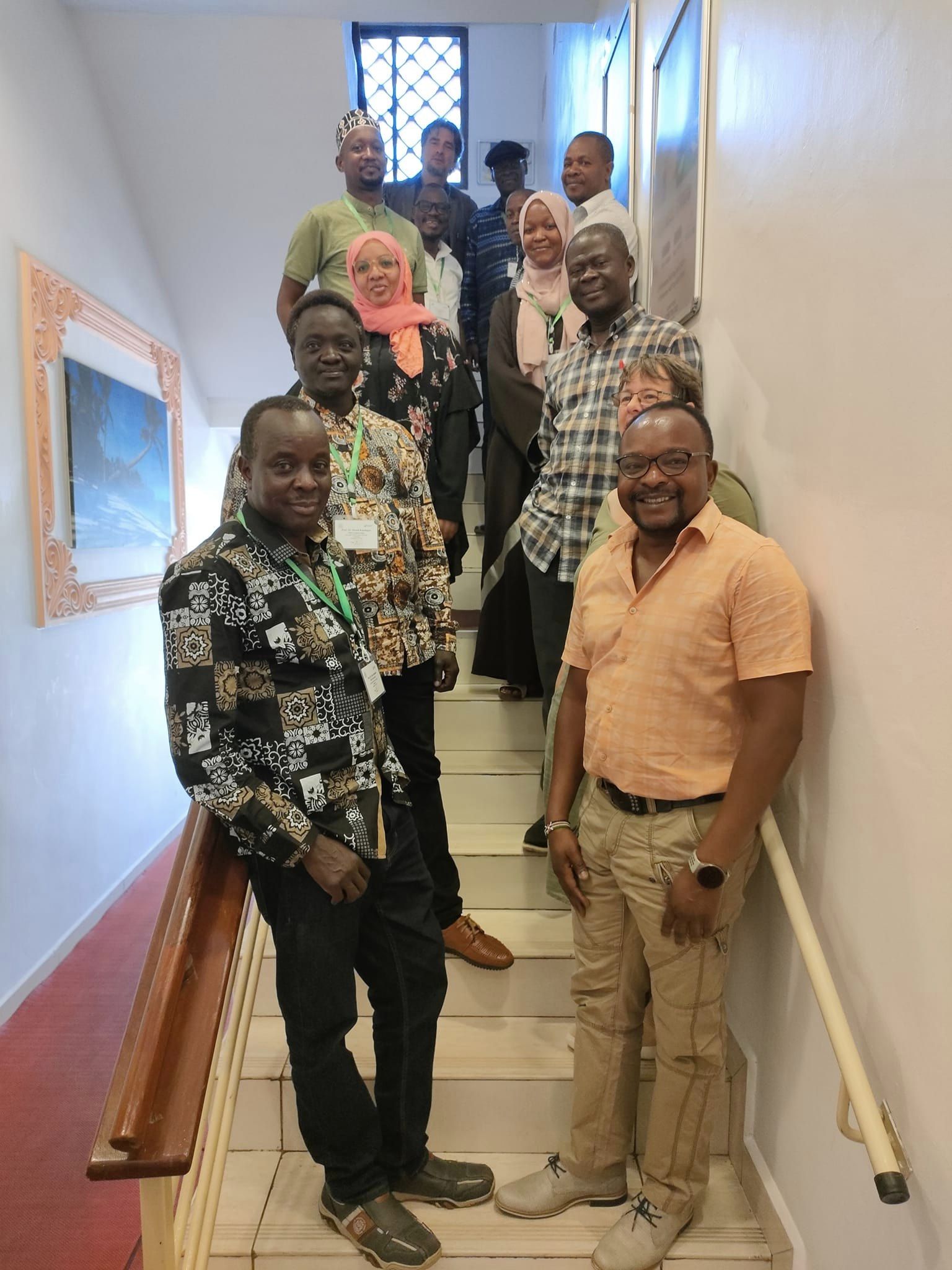
Participants of the Islamic Popular Culture workshop, Mombasa, Kenya, September 21-23, 2022 (Photo: Hassan Ndzovu)
Contribution/Relation to the Cluster’s Aims & Goals
This study examines the contemporary dynamics of Islamic popular culture and the multiple forms of public performances in the production and transmission of Islamic knowledge in Africa in a collaborative research project. While initiating collaboration with partners at the University of Bayreuth, the project also seeks to extend the cooperation to new partners in Africa, outside the cluster, through the incorporation of the Kwame Nkrumah University of Science and Technology, Ghana. As a predominately-Muslim society in West Africa, the inclusion of Nigeria as one of the research sites will through a “reflexive thematic analysis” (Braun & Clarke 2020) contribute to a broader understanding of Islamic popular culture in comparison with data from East Africa. Thus, our engagement with reflexive thematic analysis approach is crucial in assisting us to appropriately conceptualize the thematic methodology. In addition, the project would be undertaken by scholars with diverse background in Islamic, Religious and Linguistics studies, which will strengthen the study by enabling a variety of perspectives into the broader discourses of religious studies by exploring the role and place of religion in contemporary society. Particularly, the research project will help us understand, the nature of the various forms, dynamics and contemporary transformation of Islamic popular culture and public performances in Africa. More so, its approach will shade light on the multiple expressions of Islamic learning as demonstrated by popular culture, media technologies and performative aesthetics. The project will potentially speak to the RS Art & Aesthetics and RS Knowledge of the cluster. By including the dimension of knowledge and Art & Aesthetics into our research focus on learning, our collaborative work promises to produce new insights relevant to the two research foci within the cluster. Over the course of the project, we also expect to establish links with the other RSs. Significantly, the research project has the potential to show the connection of performative aesthetics and learning. Though the main contribution of the research project to the cluster agenda pertains to the multiple formal and informal modes of Islamic learning, it will also digitally document and archive religiously themed materialities of Islamic popular culture in Africa.
Project Team
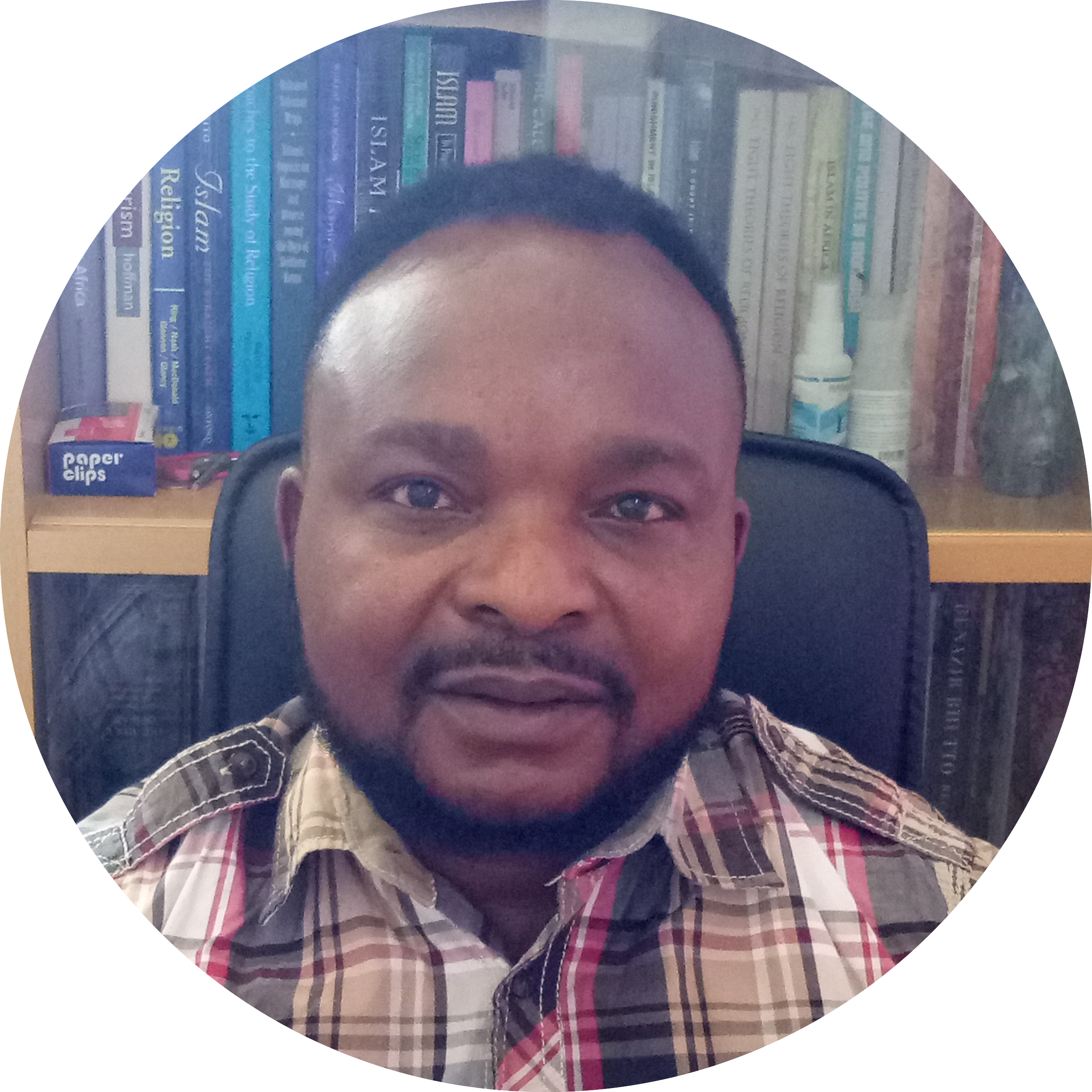
Prof Dr. Hassan J. Ndzovu
Religious Studies
Moi University
Eldoret, Kenya
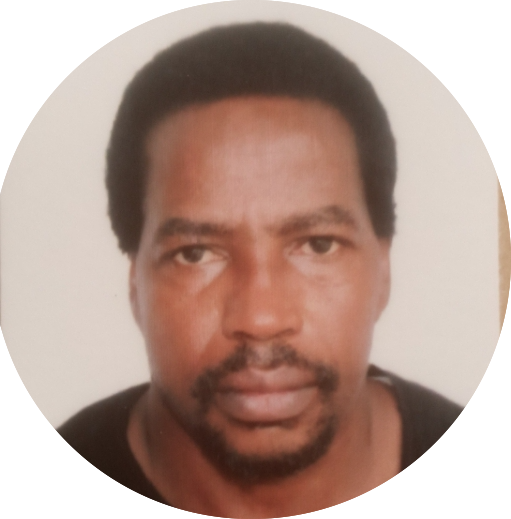
Dr. Musa Ibrahim
Principal Investigator
Kwame Nkrumah
University of Science and Technology, Ghana

Prof. Dr. Britta Frede
Islamic Studies
Postdoctoral Research Fellow
University of Bayreuth
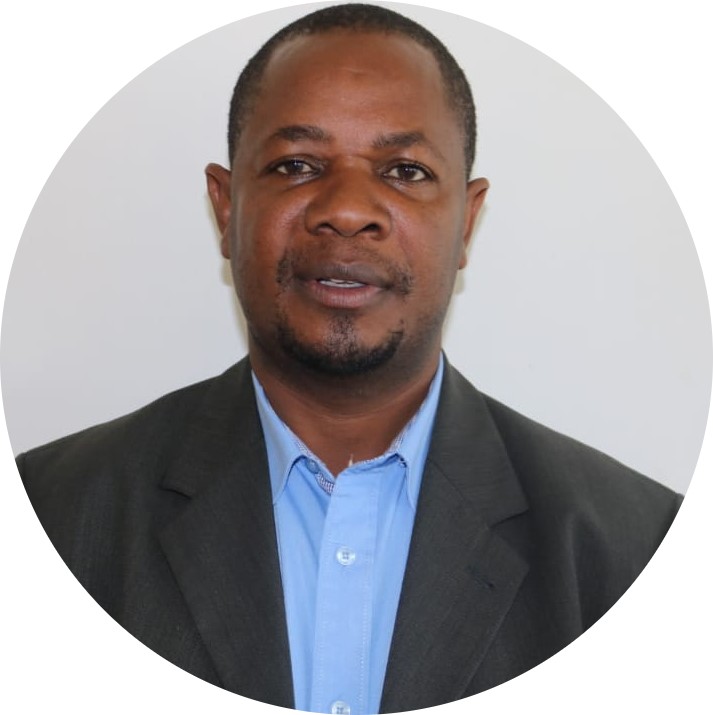
Dr. Suleiman Chembea
Principal Investigator
Bomet University College, Kenya

Mohammed Mwarandu Ndaro
PHD Candidate
Islamic Studies
Moi University, Kenya
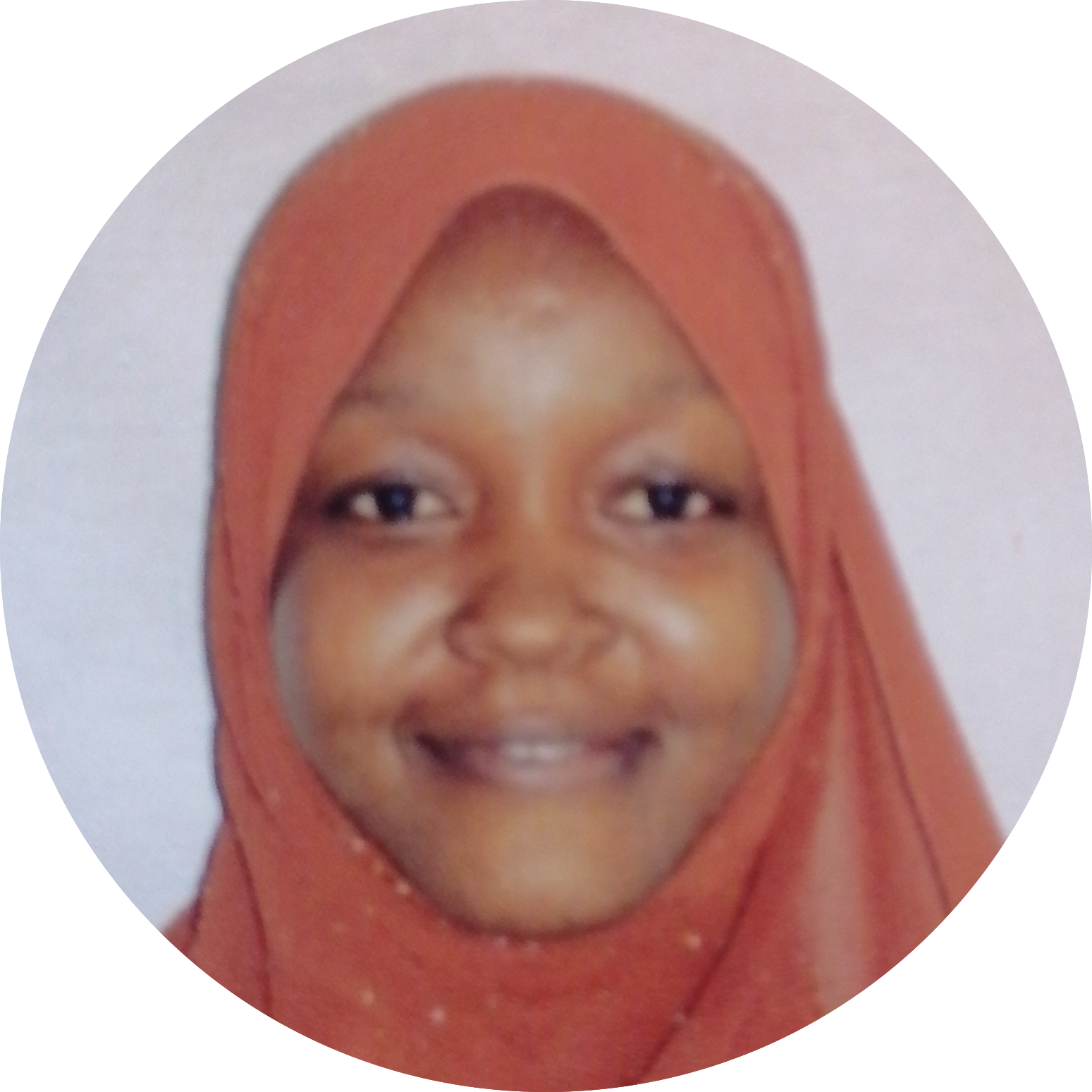
Sumaiya Yunus Mwamzandi
PHD Candidate
Kiswahili Studies,
Moi University, Kenya
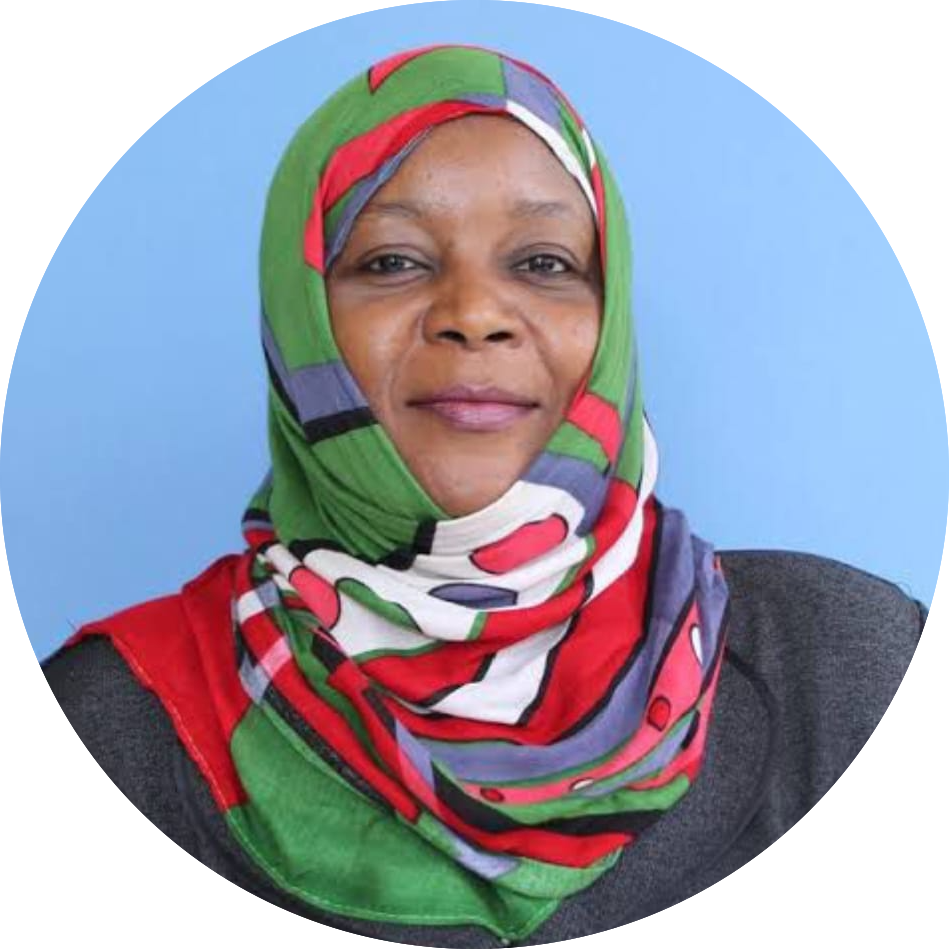
Dr. Mwanakombo Mohammed
Posthumous,
Moi University, Kenya
Further Links / Key References
- Adamu, Abdalla Uba. 2010. Islam, Hausa Culture and Censorship in Northern Nigeria. In: Viewing African Cinema in the Twenty-first Century: Art films and the Nollywood Video Revolution, eds. Mahir Saul and Ralph A. Austen, 63–73. Athens, Ohio: Ohio University Press.
- Bhabha, Homi. K. 1994. The location of culture. London & New York: Routledge.
- Diagne, Souleymane Bachir and Jean-Loup Amselle. 2020. In search of Africa(s): Universalism and Decolonial Thought. Cambridge: Polity Press
- Frede, Britta, 2021. What Does Traditional Islamic Education Mean? Examples from Nouakchott’s Contemporary Female Learning Circles. Islamic Scholarship in Africa – New Directions and Global Contexts, ed. By Ousmane Kane, 350–371.London: James Currey.
- Frishkopf, Michael, 2008. “Islamic Music in Africa” as a Tool for African Studies. Canadian Journal of African Studies/La Revue canadienne des .tudes africaines, 42:2–3, 478–507
- Ibrahim, Musa, 2020. Islam and Visual Culture: Sharia Implementation and Cinema as Visual Management in Nigeria. African Studies Review, Volume 00 Number 0, pp. 1–24
- Ibrahim, Musa, 2017. Conflict and Violence at the Crossroad of Religion and ‘New’ Media: Periscoping Faith-based Crisis through the Eyes of Camera in the Sharia-age of Northern Nigeria. Journal for the Study of the Religions of Africa and its Diaspora, 3.1, 91–109
- Kirkegaard, Annemette, 2012. Music and Transcendence: Sufi Popular Performances in East Africa. The Finnish Society for the Study of Religion Temenos, Vol. 48 No. 1, 29–48
- Larkin, Brian. 2004. From Majigi to Hausa Video Films: Cinema and Society in Northern Nigeria. In: Hausa home Videos: Technology, Economy and Society, eds. Abdalla U. Adamu, Yusuf M. Adamu, and Umar F. Jibril, 46–53.
- Loveheim, Mia. 2013. Media, Religion and Gender: Key Issues and New Challenges. London: Routledge
- McLaughlin, Fiona, 1997. Islam and Popular Music in Senegal: The Emergence of a ‚New Tradition‘. Journal of the International African Institute, Vol. 67, No. 4, pp. 560–581
- Mignolo, Walter. D. 2007. Coloniality of Power and De-colonial Thinking. Cultural Studies, 21(2-3), 155–167.
- Ndzovu, Hassan J., 2019. “Broadcast Female Muslim Preaching in Kenya: Negotiating Religious Authority and the Ambiguous Role of the Voice”, The African Journal of Gender and Religion, Vol. 25, No. 2, pp. 14–40
- Quijano, Anibal. 2000. Coloniality of Power, Eurocentrism, and Latin America. Nepantla: Views from South, 1(3), 533–580.
- Said, Edward. 1978. Orientalism. New York: Vintage Books


